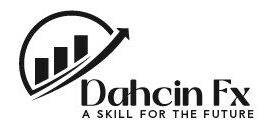Forex Trading
Pros:
– Can trade anytime: The forex market is open 24 hours a day, five days a week, allowing you to trade at any time.
– High profit potential: Forex trading can offer large returns because of market volatility and the use of leverage.
– Lower costs: The costs to trade forex, like spreads and commissions, are generally lower compared to other investments.
– Quick trades: Forex trades can be executed quickly due to the market’s high liquidity.
Cons:
– Riskier: The high volatility and leverage in forex trading mean there is a higher risk of losing money.
– Needs a lot of knowledge: Successful forex trading requires understanding global economic events, market trends, and technical analysis.
– Less protection: Forex markets can be less regulated than stock markets, so there’s a higher risk of scams and unreliable brokers.
– Potential for big losses: Because of leverage, you can lose more money than you initially invested if the market moves against you.
Both forex trading and traditional investing have their own sets of risks and rewards. Forex trading offers opportunities for significant returns with greater flexibility but comes with higher risks and complexity. Traditional investing, while generally more stable and regulated, may offer lower but steadier returns and is more suited to long-term investment strategies. Investors should assess their risk tolerance, investment goals, and knowledge level before choosing between forex trading and traditional investment options.
Comparison
Forex Trading
– Advantages: High liquidity, 24-hour market, low transaction costs, high leverage, potential for high returns.
– Disadvantages: High risk due to leverage, high volatility, requires extensive knowledge and continuous monitoring.
Traditional Investing
– Advantages: Generally more stable, better regulated, various investment options with different risk levels, more accessible information and education.
– Disadvantages: Limited trading hours, potentially higher transaction costs, typically slower growth, less flexibility in profiting from market downturns.

